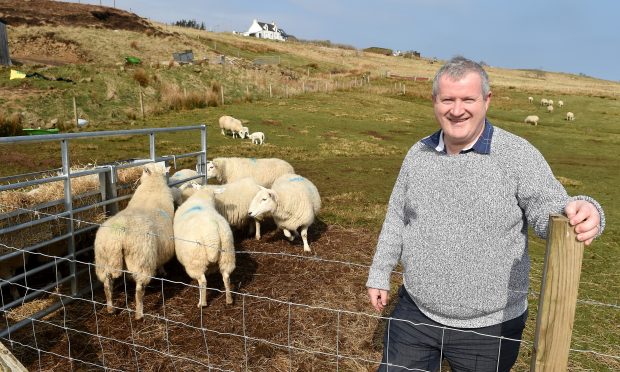Mr Blackford said the tough winter has highlighted why crofters need more support post-Brexit.
The crofter and MP said the number of sheep farmers on Skye has halved over the last 17 years due to “very challenging” economics.
Poor lamb prices, a long and difficult winter and additional feeding costs due to a wet and cold spring keeping animals indoors have all added up to make crofting a precarious business, said Mr Blackford, as he urged the UK and Scottish governments to support the sector.
“There have been calls for the government to look favourably at the pressures people are under and I would encourage a welcoming ear,” he said. “A number of farmers have lost livestock over the last few weeks, which is heartbreaking because of the effort you put into rearing them, and also has a financial impact.
“We want to make sure we’ve got a way of life that’s a livelihood to keep future generations in work.”
One of the issues is tension between payments for crofting and for keeping land empty, which can be far higher.
“Whether within the current structures or post-Brexit we need to look again at support for active farmers and crofters,” said Mr Blackford. “We need to make sure there’s a proper balance between environmental support and those delivering livestock that goes onto the plates of people across Scotland.”
The MP called on Farming Minister Michael Gove to commit to matching EU funding post-Brexit, which he has so far only done to the end of this parliamentary term in 2022.
He said: “People are concerned about food standards and hygiene, which is very high here, and it’s important we give that adequate protection.”
Scottish Government agency the Crofting Commission has launched a review of the croft support funding system this month, due to report back in June.
Commission convener Rod Mackenzie said: “We are aware of how important agriculture support is for the future of crofting, and believe it is vital that the debate about future support systems takes account of the particular challenges faced by crofters.
“More qualitative evidence is needed to help construct appropriate support for the future and that is why we have commissioned this research.”
The UK Government Department for Environment, Food & Rural Affairs (Defra) declined to comment.
